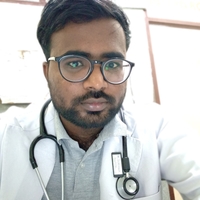New Year Bumper Sale @ Rs. 1
X

- हिं - हिंदी
- En - English
- म - मराठी
- తె - తెలుగు
- த - தமிழ்
- বা - বাংলা
New Year Bumper Sale @ Rs. 1 X

Yes, thalassemia is an inherited disorder, which means it is passed on from the parents to their children through genes.
Genes occur in pairs: a child gets one gene from the mother and one from the father for every trait, including the colour of their eyes and some health conditions.
If the child inherits one faulty thalassemia gene from one parent but a normal gene from the other, they are called carriers. Carriers often do not have any signs of illness other than mild anaemia.
People who inherit faulty thalassemia genes from both parents tend to have moderate to severe forms of thalassemia.
Carriers do not have a disease; however, they can pass the faulty gene on to their child. If their partner is either a carrier or a thalassemic, then that would increase the couple's chances of having a thalassemic baby.

Thalassemia minor
Thalassemia minor is a less dangerous state as the person presents with mild anaemia. Usually, the patient is given no specific treatment but they are capable of passing on the disease to their next generation.
Thalassemia major
Thalassemia major is the more severe form of the disease. A person suffering from thalassemia major requires regular blood transfusions and extensive medical care for their survival.
They start presenting with symptoms like a pale body, listless appearance and poor appetite, within the first two years of life. If they do not get any treatment, they may suffer from enlargement of organs like the spleen, liver and heart. Their bones soon become thin and brittle.
It has been reported that children who didn't get treated for thalassemia major died because of heart failure and various infections.

Alpha thalassemia is seen when any one or all four alpha-globin genes that make haemoglobin are missing or damaged. However, the disease presentation is different if one gene is missing and if all four are missing.
If one alpha-globin gene is missing or damaged: Silent carrier
If two alpha-globin genes are missing or damaged: Alpha thalassemia minor
If three alpha-globin genes are missing: Haemoglobin H disease
If all four alpha-globin genes are missing: Alpha thalassemia major
This is a severe condition. In rare cases, if a pregnant woman is carrying a fetus with alpha thalassemia major, the fetus may be stillborn or the baby could die soon after birth. This is known as hydrops fetalis.

Beta thalassemia is the most common form of thalassemia. Beta thalassemia occurs when one or both (of the two) genes that form beta-globin get completely or partially damaged.
If one beta-globin gene is damaged: Beta-thalassemia minor
If both the beta-globin genes are damaged: Beta-thalassemia intermedia or Beta-thalassemia major

People with moderate and severe thalassemia are usually severely anaemic, which means they have low levels of haemoglobin in their body, so they are not allowed to donate blood. However, people with milder forms of anaemia can donate blood, if their haemoglobin levels match the specified criteria.

Women who are carriers of thalassemia usually don't have any problems conceiving. However, women who have a moderate or severe form of thalassemia, need blood transfusions for their survival. Due to the continuous blood transfusion, these women suffer from delayed puberty and amenorrhea (no periods), which makes it difficult for them to get pregnant. The extra iron in the transfused blood is also known to damage the ovaries and the testes. Women with any kind of thalassaemia should get themselves and their partners tested before planning a pregnancy because:

Most severe thalassemia patients can live up to 30 years, whereas with improved facilities, they can live up to 60 years.
A person who is in the carrier state or has mild thalassemia won't require any treatment and can live their life normally.
However, the life expectancy of a person with moderate or severe thalassemia depends upon their medical care. The availability of required treatment such as blood transfusions or chelation therapy on a regular basis from a haematologist prevents them from severe anaemia and possible organ damage from iron overload.

No, thalassemia is not a type of blood cancer. Thalassemia is a genetically inherited blood disorder in which there is either absence of good haemoglobin or the presence of faulty haemoglobin. However, in the case of blood cancer, there is a multiplication of abnormal white blood cells in the body which reduce the ability of the body to fight against diseases. Both diseases can be life-threatening if not diagnosed and treated early.

If a child is born as a carrier of thalassemia, they would be able to live their life just like a healthy person. However, if the child has a severe form of thalassemia, such as thalassemia major, they would start showing severe symptoms such as severe anaemia, jaundice and organ enlargement even before they attain the age of two years.
In people with thalassemia intermedia, the symptoms may appear at a later age.

The treatment of thalassemia depends on the severity of the disorder. For instance, people who are in the carrier state would not require any treatment. Also, the ones with alpha or beta thalassemia minor with no symptoms would not require any treatment. However, for the people who suffer from moderate and severe forms of thalassemia, doctors use three standard treatments, which are: